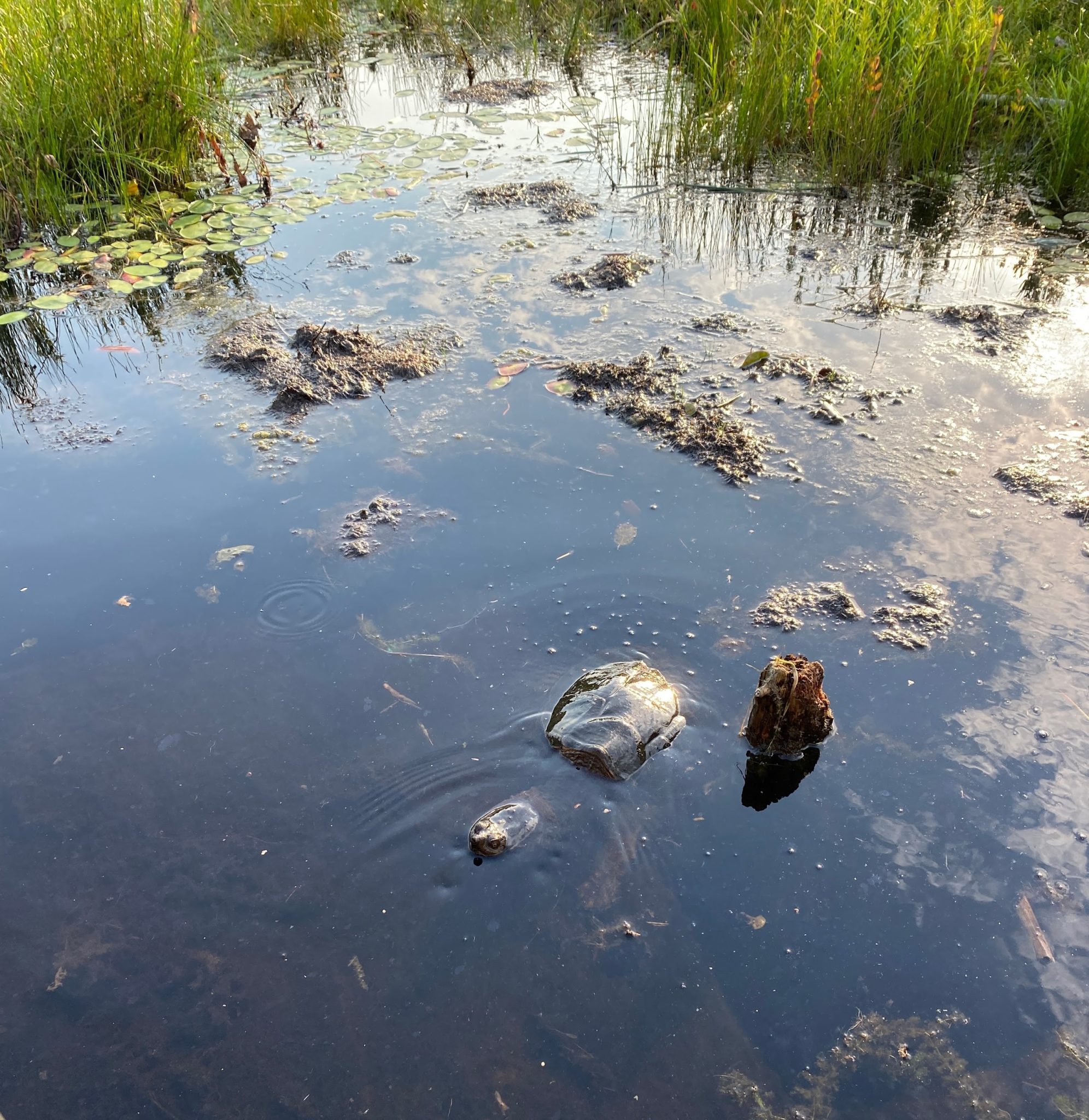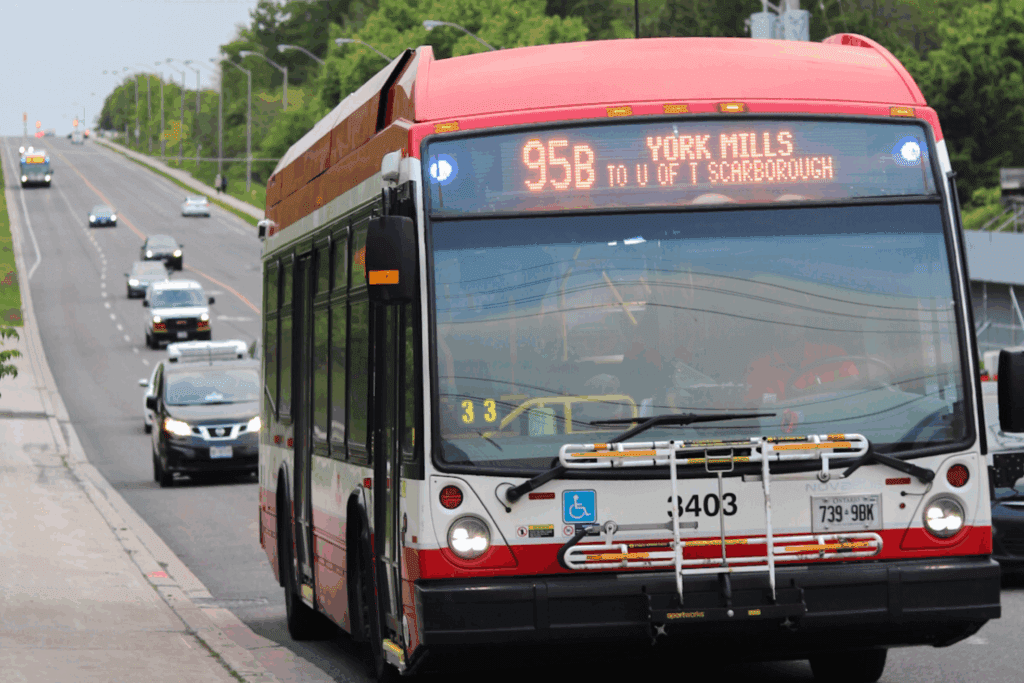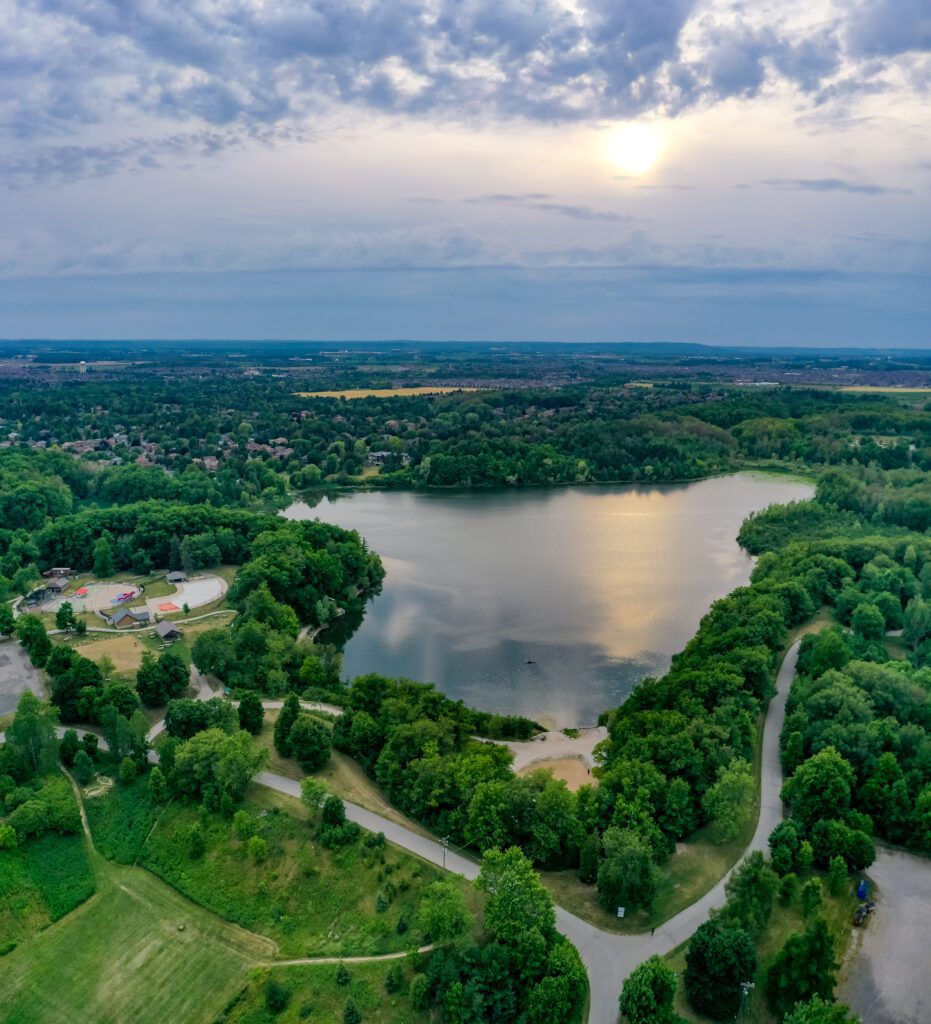Ontario is home to eight native species of freshwater turtles – the biggest species variety and greatest density of turtles in Canada.
Unfortunately for our turtles, Ontario is also home to the highest density of roadways.
Turtles are semi-aquatic meaning that they spend time in water and on land. They spend the winters “hibernating” at the bottom of lakes, ponds or rivers usually buried in the mud for protection. But as soon as the weather warms up, turtles emerge from the water and are on the move. In search of mates, new territories, and to find a suitable spot to lay their eggs they’ll travel on land.
Risky Roads
These slow-moving critters are some of the most threatened species in the province with road mortality and habitat loss as the leading causes of the species’ decline.
- Roads are generally built through or close to wetlands, which are critical habitats for turtles, forcing them to cross in order to feed, mate and nest.
- Turtles prefer to nest in sunny areas with soft sands and gravels, making road shoulders deceptively inviting spaces. Female turtles view the sides of roads as prime nesting locations and often put themselves and hatchlings in close proximity to cars and danger.
Turtle populations are extremely sensitive and it can take up to 20 years before a female lays her first batch of eggs. Because of this, every adult turtle is crucial for the maintenance of population numbers. The death of even a small number of adult turtles can have a detrimental impact on whole populations. Anything that we can do to limit turtle deaths will help Ontario’s populations.
What you can do to help
- Be extra cautious while driving on roads that are in close proximity to wetlands and other water bodies. While driving, be on the lookout for small, dark, moving spots on roads.
- Help a turtle cross the road: If you come across a turtle on the road, you can try to help it (if it is safe to do so) by placing your hands on the underside and topside of the turtle and gently move the turtle in the direction that they are going.
- Sign up to be a turtle taxi with the Ontario Turtle Conservation Centre (OTCC). The OTCC has volunteers that help transport injured turtles to the Centre and also help release rehabilitated turtles back into the wild.
- If you find an injured turtle on the road, note the exact location and call OTCC at 705-741-5000 right away.
Check out OTCC’s website to learn more about Ontario’s turtles and more ways you can help.
How urban sprawl affects Ontario’s turtle populations
A large number of wetlands that were once home to many turtle populations have been destroyed by housing and infrastructure development. The destruction of critical turtle habitat continues to be a growing concern as the Ontario government pushes for more harmful development to help accelerate urban sprawl plans. More urbanization leads to smaller patches of suitable turtle habitat that are surrounded by dangerous busy roads. The combination of habitat destruction and increasing the amount of roads is lethal to our vulnerable turtle populations.
Take action today to help put a stop to Ontario’s destructive sprawl plans and help protect endangered and threatened species, like turtles, from extinction.








